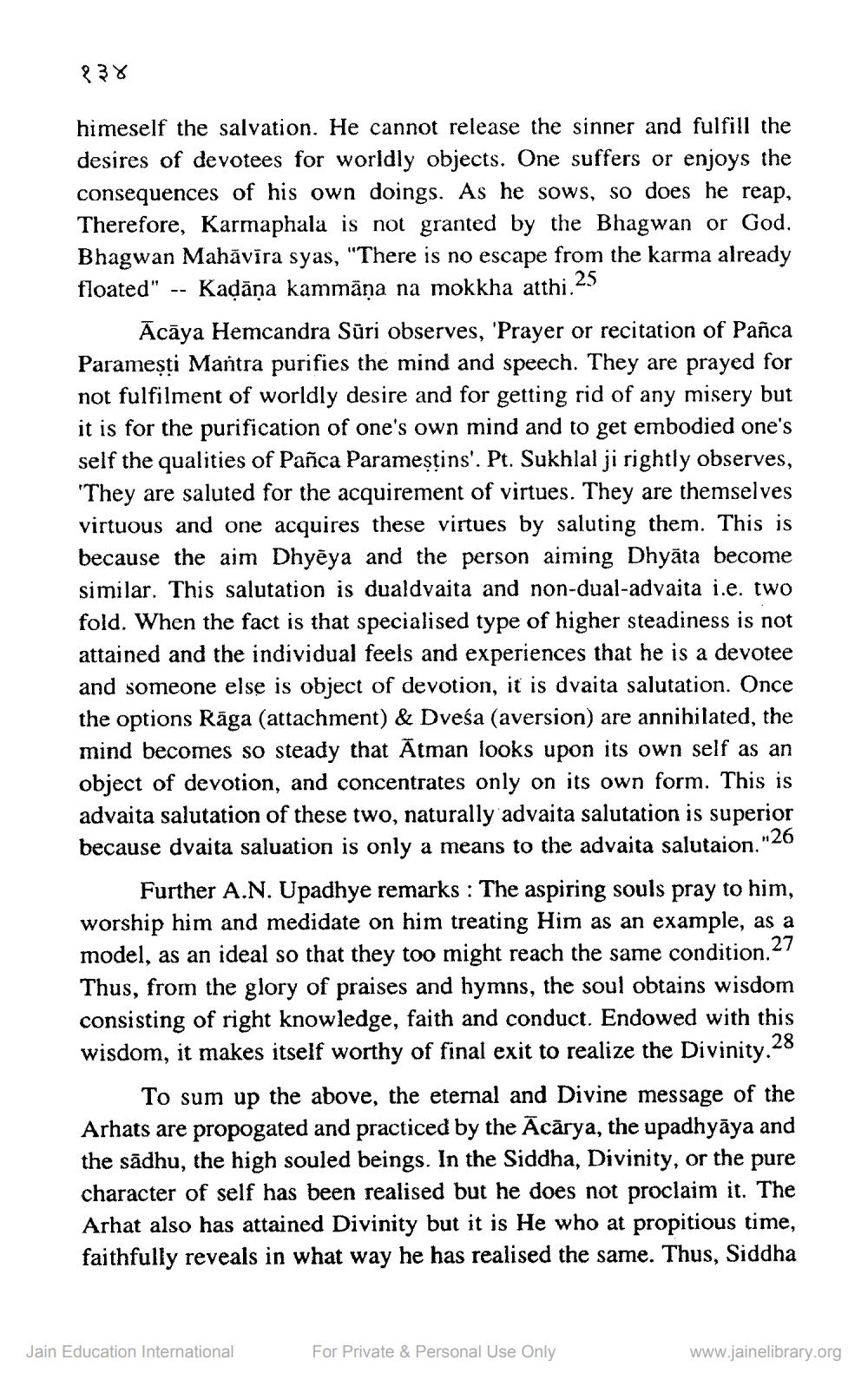________________
१३४
himeself the salvation. He cannot release the sinner and fulfill the desires of devotees for worldly objects. One suffers or enjoys the consequences of his own doings. As he sows, so does he reap, Therefore, Karmaphala is not granted by the Bhagwan or God. Bhagwan Mahāvīra syas, "There is no escape from the karma already floated" -- Kadäņa kammäņa na mokkha atthi.2)
Ācāya Hemcandra Sūri observes, 'Prayer or recitation of Panca Paramești Mantra purifies the mind and speech. They are prayed for not fulfilment of worldly desire and for getting rid of any misery but it is for the purification of one's own mind and to get embodied one's self the qualities of Pañca Paramestins'. Pt. Sukhlal ji rightly observes, 'They are saluted for the acquirement of virtues. They are themselves virtuous and one acquires these virtues by saluting them. This is because the aim Dhyêya and the person aiming Dhyāta become similar. This salutation is dualdvaita and non-dual-advaita i.e. two fold. When the fact is that specialised type of higher steadiness is not attained and the individual feels and experiences that he is a devotee and someone else is object of devotion, it is dvaita salutation. Once the options Räga (attachment) & Dveśa (aversion) are annihilated, the mind becomes so steady that Ātman looks upon its own self as an object of devotion, and concentrates only on its own form. This is advaita salutation of these two, naturally advaita salutation is superior because dvaita saluation is only a means to the advaita salutaion."20
Further A.N. Upadhye remarks: The aspiring souls pray to him, worship him and medidate on him treating Him as an example, as a model, as an ideal so that they too might reach the same condition.27
Thus, from the glory of praises and hymns, the soul obtains wisdom consisting of right knowledge, faith and conduct. Endowed with this wisdom, it makes itself worthy of final exit to realize the Divinity 28
To sum up the above, the eternal and Divine message of the Arhats are propogated and practiced by the Ācārya, the upadhyāya and the sādhu, the high souled beings. In the Siddha, Divinity, or the pure character of self has been realised but he does not proclaim it. The Arhat also has attained Divinity but it is He who at propitious time, faithfully reveals in what way he has realised the same. Thus, Siddha
Jain Education International
For Private & Personal Use Only
www.jainelibrary.org




